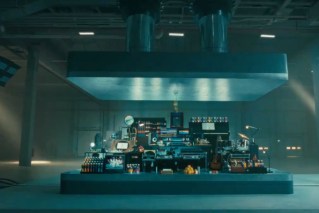Australia is not ready for driverless cars, experts warn


Driverless cars are already being trialled in Australia. Photo: Getty
Driverless cars are being tested on Australian roads, but experts say Australia is not ready to embrace this type of technology following one pedestrian death and a number of collisions.
In order for driverless cars to be deemed safe around other vehicles and pedestrians, they have to be tested in urban landscapes.
But using public roads as a test environment has sparked several concerns among experts, who say it would put pedestrians and road users in great danger.
Last week it was revealed an Apple Inc self-driving car was rear-ended while merging onto a freeway near the company’s Silicon Valley headquarters this month.
Before this incident, a self-driving Uber car hit and killed a pedestrian in Arizona in March, in what was the first case of a pedestrian death caused by an autonomous vehicle.
Driverless cars are ranked on six differing levels of ability, from level 0 to level 5.
Level 1 requires driver assistance with autonomous vehicle technology, while level 2 and 3 have partial automation, level 4 has high automation and level 5 is full automation (no human control of the vehicle).
Driverless cars: ‘Extremely dangerous’
Professor Sandeep Gopalan, law expert at Deakin University, said driverless cars with level 5 autonomy would be extremely dangerous to test in urban environments within Australia.
“Driverless cars are not as close to being on our roads as the initial marketing hype led us to believe,” Professor Gopalan told The New Daily.
“All of the evidence including the Arizona crash report and other research shows that these cars still have a long way to go.”
He said there needed to be stricter laws around regulating autonomous vehicles in Australia.
“In the past year, there’s been the belief that we need the law to enable autonomous vehicle technology because there’s this assumption that we’re behind in our technology within this area.

Experts warns driverless car testing is moving too fast. Photo: CarAdvice
“However, we should be focusing on laws that implement strict data sharing among the companies who are testing these vehicles.
“It’s not just about crash data. We need to know if the cars are picking up certain objects, not slowing in time or requiring the driver to intervene before a crash.”
Professor Damon Honnery, deputy head of the department of mechanical and aerospace engineering at Monash University, told The New Daily that Australia wasn’t ready to embrace autonomous vehicles.
“For private transport where vehicles can move on any of the gazetted roads then we’re nowhere near ready for autonomous vehicles,” Professor Honnery said.
“For minor degrees of autonomous vehicles, that’s not an issue and it’s already happening at some universities. But if you’re talking about cars that can drive you to work, there are risks involved with this.”
He said driverless cars posed a huge engineering challenge.
“When it comes to mixed traffic environments, the vehicles have to respond very quickly to this. And if you’re dealing with complex road structures, this will definitely pose challenges.”
Associate Professor Dr Hussein Dia, from the Smart Cities Research Institute at Swinburne University of Technology, said the quality of driverless car software wasn’t up to scratch.
“The technology is developing very fast but it definitely needs more research,” Dr Dia said.
An aspect that needs to be focused on within autonomous vehicles is redundancy, he said.
“If you look at aircrafts, they are very safe because they have multiple levels of redundancies in their computing system, so if a computer, sensor or any other software part fails, there’s a backup.
“But no one has figured out how you can translate this high level of redundancy into car technology.”
Cyber security concerns
Deakin University’s Cyber Security Research Institute Professor Matt Warren said driverless car technology posed several cyber security risks.
“The problem with autonomous vehicles lies within their systems because engineers have not considered the security issues behind this technology,” Professor Warren said.
He said vehicle technology was a prime target for hackers and terrorists.

Cyber security concerns have been raised over driverless car technology. Photo: Getty
“In 2015 when hackers took over a Jeep Cherokee to remotely control it, this led to more than 1.3 millions cars being recalled and Chrysler had to install security patches as a result.
“The threat of terrorists hacking into autonomous cars and taking control of the vehicles at the same time would lead to a lot of damage.”
The future of driverless cars in Australia
RACV is currently undertaking automated technology trials including an autonomous vehicle being trialled in Carlton, Melbourne and the Transurban trial on the Monash-CityLink-Tullamarine corridor.
Dr Kirsten McKillop, manager of legislative policy at the National Transport Commission, said some current trials involved autonomous shuttles.
“There’s trialling going on all around Australia with new announcements always being made, which are being done to assess the safety and how humans interact with the technology,” Dr McKillop said.
National Transport Commission spokesman Ron Grasso said the Transport and Infrastructure Council had put forward an aim for autonomous vehicles to be introduced in Australia by 2020.
“Our main aim is all about making sure that when these vehicles do come into the market, that they operate as safely as possible,” Mr Grasso told The New Daily.
Professor Honnery said there were still several questions to be raised around fuel excises with autonomous vehicles in Australia.
“The issue here is that current fuel excising arrangements are based on fossils fuels and there’s a lot of discussion on how governments will capture this once autonomous vehicles become quite common,” Professor Honnery said.








